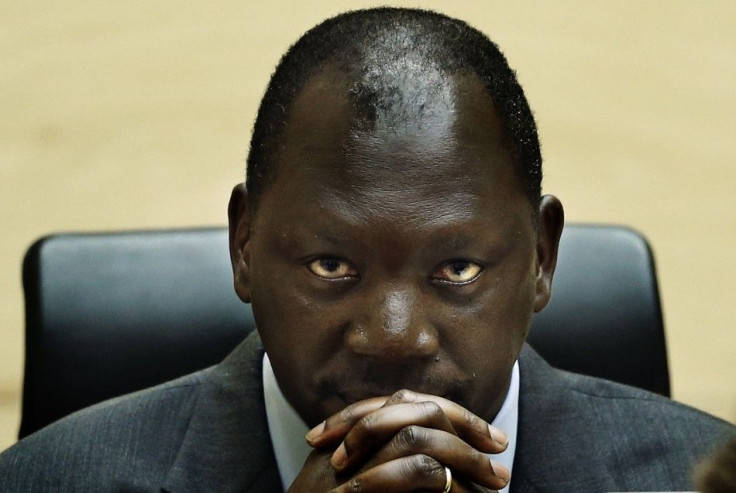Thomas Lubanga Sentenced, International Criminal Court Issues Congo Warlord 14 Years In Prison

Thomas Lubanga, a convicted warlord from the Democratic Republic of the Congo, was sentenced to 14 years in prison on Tuesday.
Lubanga, who was charged in March for recruiting and using children in his Union of Congolese Patriots militia, became the first person to be sentenced by the International Criminal Court since it was setup 10 years ago. The six years Lubanga served in detention will be deducted from his sentence, and he is eligible for early parole, according to Reuters.
Lubanga is believed to have sent children to kill and be killed during fighting in Congo's eastern Ituri region in 2002-2003, leaving an estimated 60,000 people dead.
The vulnerability of children means they need to be afforded particular protection, Presiding Judge Adrian Fulford said at the sentencing hearing.
The International Criminal Court began its investigation of Lubanga in 2004 when the Congolese government said that the ICC was authorized to prosecute crimes within the jurisdiction of the court allegedly committed anywhere in the territory of the DRC.
Two years later, in 2006, the ICC uncovered reasonable evidence that proved Lubanga to be responsible for conscripting and enlisting children under the age of fifteen years and using them to participate actively in hostilities.
Lubanga became the first person to be arrested under an ICC warrant, when the Congolese authorities arrested him and transferred him into the Criminal Court's custody. He was flown to the Hague, where he has been held in the ICC detention center since March 17, 2006.
William Schabas, a law professor at Middlesex University, spoke to Reuters about Lubanga's sentencing.
If you'd said at the beginning, this court would finish one trial in 10 years, and that would be for a secondary offence like using child soldiers, people would have said they won't waste their money on it.
Other human rights activists also expressed dissatisfaction with the way the sentencing was handled.
We had hoped he would stay in prison for life in order to ease the minds of the victims, Emmanuel Folo, a human rights lawyer in Ituri, told Reuters.
Judge Fulford reportedly criticized the ICC's founding prosecutor, Luis Moreno Ocampo, for his conduct in Lubanga's case.
According to a statement, cited by Reuters, Fulford said that Lubanga's sentence was shortened because of his good behavior in the face of the prosecutor's failure to disclose some evidence and giving misleading statements to the media. In May, another court in The Hague, sentenced former Liberian president Charles Taylor to 50 years in prison for war crimes in Sierra Leone.
© Copyright IBTimes 2025. All rights reserved.






















